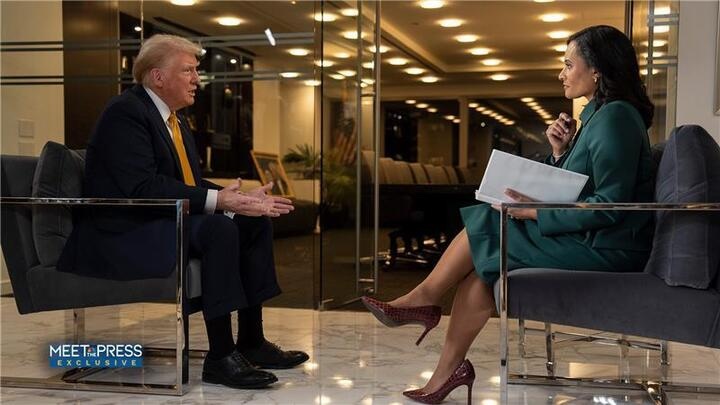
President-elect Donald Trump, in a December 8th, 2024 interview on NBC’s “Meet the Press with Kristen Welker,” declared his intention to issue an executive order on his first day in office to revoke birthright citizenship, a right guaranteed by the 14th Amendment. He acknowledged the significant legal challenges inherent in such an action, a point underscored by numerous constitutional law scholars who maintain that an executive order cannot override Supreme Court precedent on the matter. Despite this, Trump stated unequivocally, “We have to end it. We’re going to end that because it’s ridiculous.”
His comments extended beyond birthright citizenship. He expressed willingness to negotiate with Democrats on a solution for Dreamers, those individuals protected under the Deferred Action for Childhood Arrivals (DACA) program. Simultaneously, he maintained his support for mass deportations, including the deportation of entire families, even if some members hold U.S. citizenship.
Trump’s most extensive remarks, however, focused on his plan to alter the 14th Amendment, which, ratified in 1868, grants citizenship to all individuals born within U.S. territory. He stated his intention to attempt this via executive order, adding, “if we can.” This position directly contradicts expert opinion. Gerald Neuman, director of the human rights program at Harvard Law School, stated in 2018, along with other constitutional law scholars, that there is no serious scholarly debate about a president’s ability to unilaterally overturn the Supreme Court’s interpretation of the 14th Amendment’s Citizenship Clause. Amending the Constitution requires a two-thirds vote in both houses of Congress and ratification by three-fourths of the state legislatures. While Republicans will control both chambers in January, they lack the necessary two-thirds majority.
Further, Trump’s assertion that the U.S. is the only country with birthright citizenship is inaccurate. Many countries, including Canada and Brazil, grant birthright citizenship, though some, like France, impose restrictions, such as requiring at least one parent to be a citizen.
Welker questioned Trump about his plans for Dreamers and his mass deportation plans, focusing on their impact on mixed-status families (families with members holding different immigration statuses). While stating a desire to avoid family separation, Trump advocated for the deportation of entire families to maintain unity, a policy that would include children legally residing in the U.S. He sidestepped repeated inquiries about reinstating his prior family separation policy, stating that families would be deported together “very humanely.”
Last updated 3:55 p.m., Dec. 9, 2024 by Ariana Figueroa, Minnesota Reformer
(Note: The appended material regarding the Minnesota Reformer and its publication details has been retained.)

